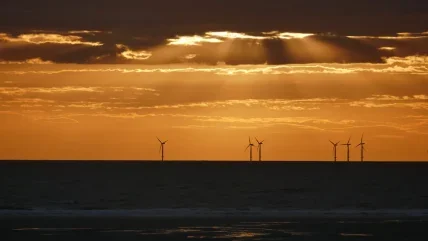
Donald Trump, in his return to the White House for a second term, has issued a directive to temporarily withdraw all areas on the Outer Continental Shelf (OCS) from offshore wind leasing.
The new US President cited the need for a comprehensive review of environmental and economic impacts.
The order, which takes effect this week, halts new wind energy leasing agreements and renewals while maintaining all existing leases.
Under the memorandum, the Department of the Interior (DoI), in collaboration with other federal agencies, will conduct a thorough assessment of the ecological, economic, and environmental consequences of offshore wind projects.
The review will evaluate their effects on marine life, energy costs, navigational safety, and the fishing industry, among other factors. Trump’s order also raises concerns about the environmental footprint of offshore wind projects.
Additionally, it calls for an assessment of the costs associated with abandoned wind turbines and their impact on surrounding communities.
Existing offshore wind projects, including those developed by companies such as Ørsted, Avangrid, Copenhagen Infrastructure Partners, and Dominion Energy, are not expected to be directly impacted by the suspension.
However, the memorandum requires a review of active leases to determine whether modifications or terminations are necessary.
The Lava Ridge wind project in Idaho has also been paused pending a detailed review of its environmental and economic impact. The directive calls for a reassessment of the project’s federal approval process.
Renewable energy advocates such as Turn Forward have expressed concern over the suspension, arguing it could delay progress in the US transition to sustainable energy.
Turn Forward executive director Hillary Bright said: “As the Administration takes a closer look at offshore wind development, they must keep in mind that this vast domestic resource is instrumental to achieving American energy dominance.
“One offshore wind project alone can power half a million American homes in populated coastal locations — and boost electrical grids already strained by energy-hungry data centers and brutally cold winter weather.”
The suspension will remain in place until the memorandum is revoked or replaced by further presidential action.






